Francesca Tomasi
KwicKwocKwac, a tool for rapidly generating concordances and marking up a literary text
Oct 08, 2024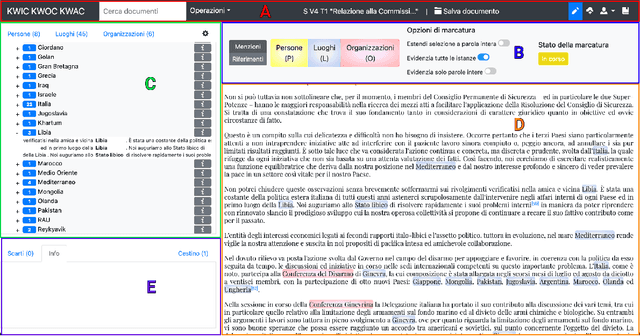
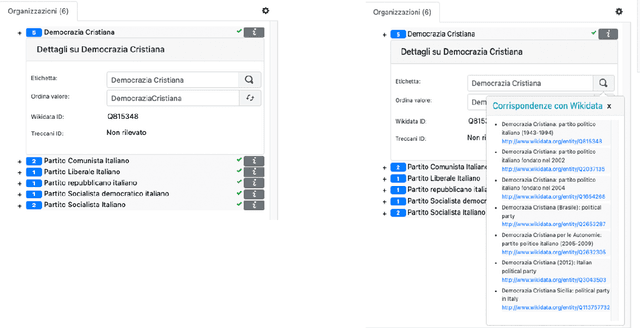
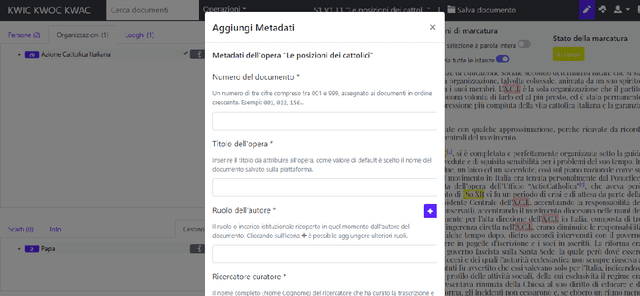
Abstract:This paper introduces KwicKwocKwac 1.0 (KwicKK), a web application designed to enhance the annotation and enrichment of digital texts in the humanities. KwicKK provides a user-friendly interface that enables scholars and researchers to perform semi-automatic markup of textual documents, facilitating the identification of relevant entities such as people, organizations, and locations. Key functionalities include the visualization of annotated texts using KeyWord in Context (KWIC), KeyWord Out Of Context (KWOC), and KeyWord After Context (KWAC) methodologies, alongside automatic disambiguation of generic references and integration with Wikidata for Linked Open Data connections. The application supports metadata input and offers multiple download formats, promoting accessibility and ease of use. Developed primarily for the National Edition of Aldo Moro's works, KwicKK aims to lower the technical barriers for users while fostering deeper engagement with digital scholarly resources. The architecture leverages contemporary web technologies, ensuring scalability and reliability. Future developments will explore user experience enhancements, collaborative features, and integration of additional data sources.
Exploratory Methods for Relation Discovery in Archival Data
Feb 23, 2022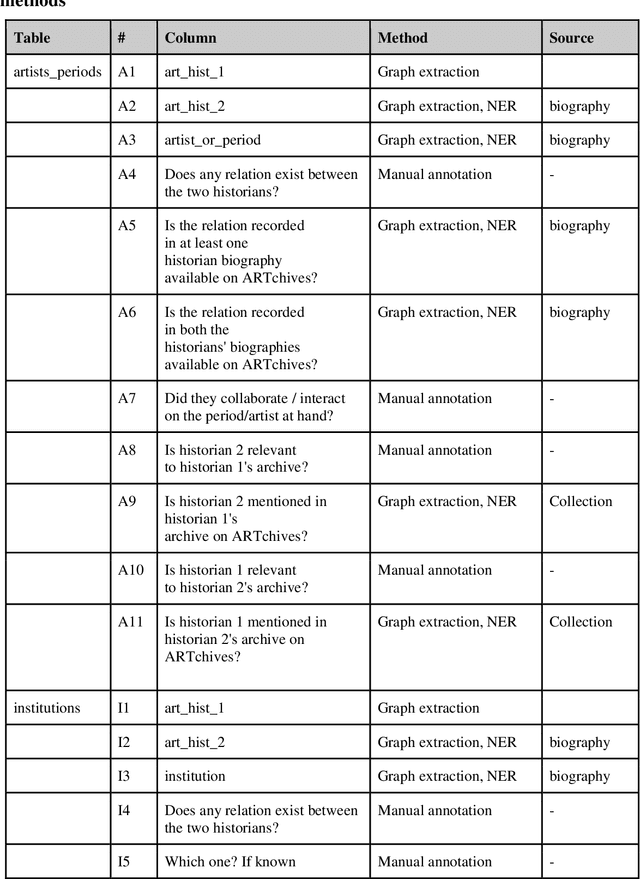
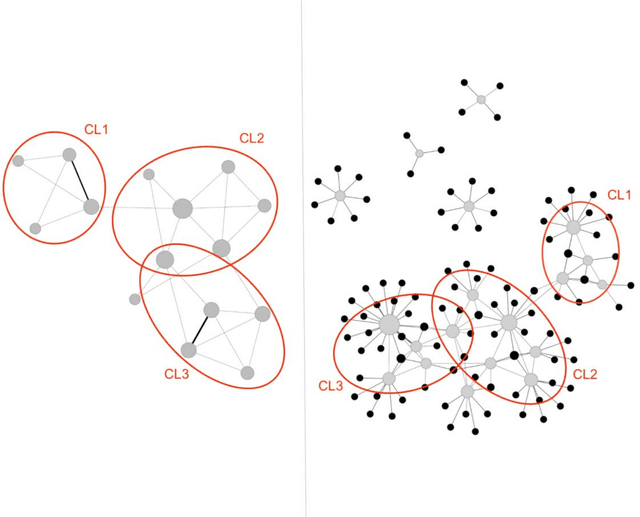
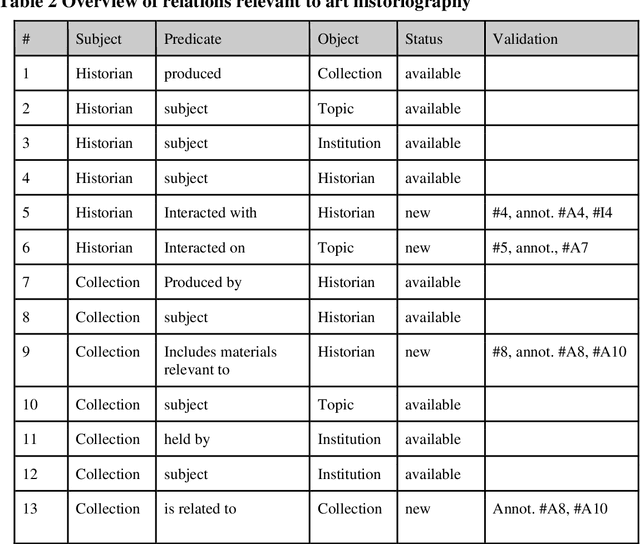
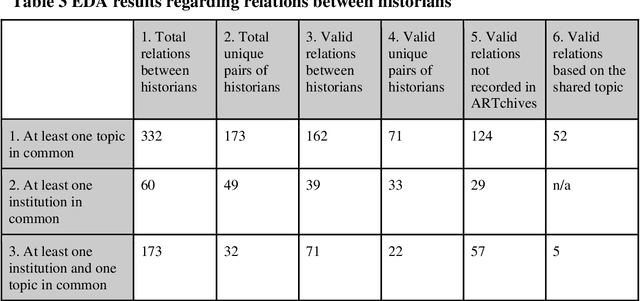
Abstract:In this article we propose a holistic approach to discover relations in art historical communities and enrich historians' biographies and archival descriptions with graph patterns relevant to art historiographic enquiry. We use exploratory data analysis to detect patterns, we select features, and we use them to evaluate classification models to predict new relations, to be recommended to archivists during the cataloguing phase. Results show that relations based on biographical information can be addressed with higher precision than relations based on research topics or institutional relations. Deterministic and a priori rules present better results than probabilistic methods.
The Landscape of Ontology Reuse Approaches
Nov 25, 2020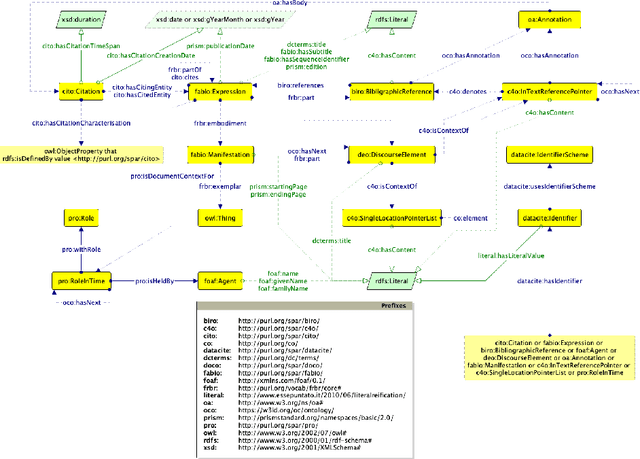
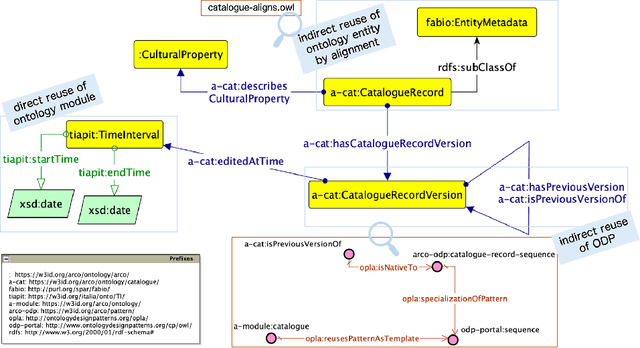
Abstract:Ontology reuse aims to foster interoperability and facilitate knowledge reuse. Several approaches are typically evaluated by ontology engineers when bootstrapping a new project. However, current practices are often motivated by subjective, case-by-case decisions, which hamper the definition of a recommended behaviour. In this chapter we argue that to date there are no effective solutions for supporting developers' decision-making process when deciding on an ontology reuse strategy. The objective is twofold: (i) to survey current approaches to ontology reuse, presenting motivations, strategies, benefits and limits, and (ii) to analyse two representative approaches and discuss their merits.
 Add to Chrome
Add to Chrome Add to Firefox
Add to Firefox Add to Edge
Add to Edge